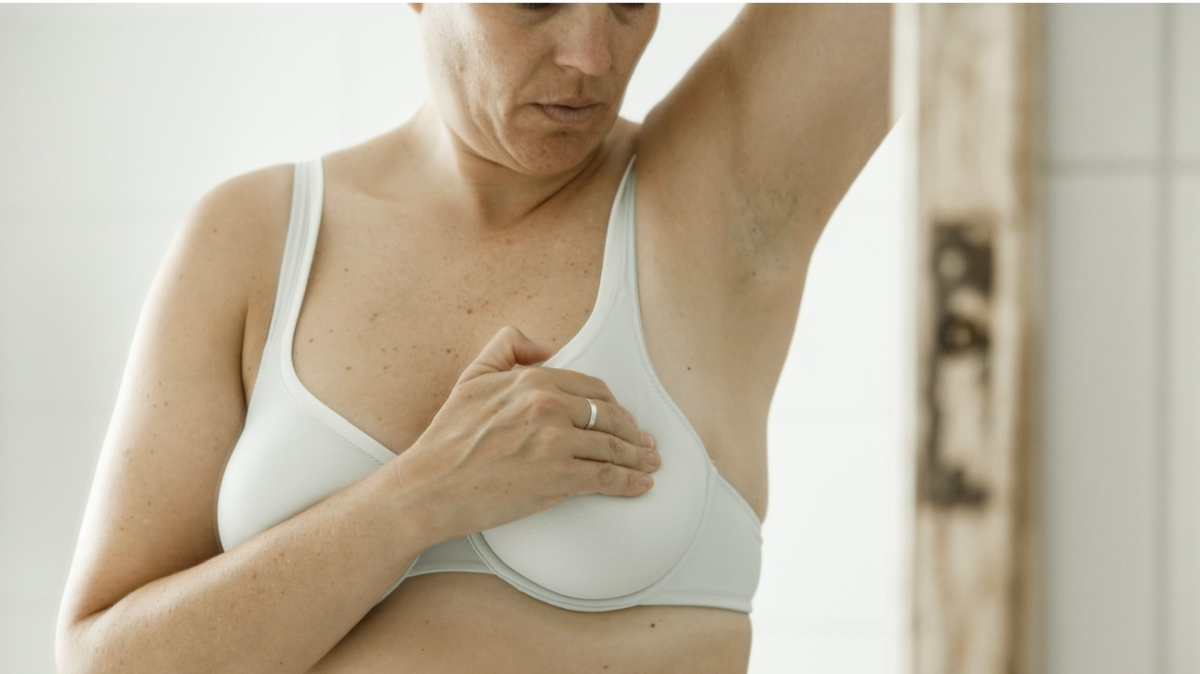Month: May 2024
The Egg Freezing Process: Preserving Fertility for the Future

In recent years, advancements in reproductive technology have provided women with more options when it comes to family planning. One such option is egg freezing, also known as oocyte cryopreservation. This procedure allows women to preserve their eggs for future use, giving them the opportunity to delay childbirth and increase their chances of conceiving later in life. In this article, we will explore the egg freezing process, its benefits, success rates, and the emotional considerations involved.
Understanding Egg Freezing
Egg freezing is a procedure that involves extracting a woman’s eggs, freezing them, and storing them for later use. It is commonly recommended for women who wish to preserve their fertility due to various reasons, such as career goals, medical conditions, or personal circumstances. By freezing their eggs at a younger age, women can increase their chances of successful conception when they are ready to start a family.
The Egg Freezing Process
The egg freezing process consists of several steps, beginning with an initial consultation with a fertility specialist. During this consultation, the woman’s medical history and reproductive health will be evaluated, and a personalized treatment plan will be created. The specialist will explain the entire process, address any concerns, and answer any questions the woman may have.
Ovarian Stimulation
To increase the number of eggs available for retrieval, the woman undergoes ovarian stimulation. This involves taking fertility medications, typically in the form of injections, to stimulate the ovaries and promote the development of multiple eggs. Regular monitoring through blood tests and ultrasounds will be conducted to track the progress of follicle growth and hormone levels.
Egg Retrieval
Once the follicles have reached the desired size, the eggs are ready to be retrieved. The retrieval procedure is a minor surgical intervention performed under sedation or anesthesia. A thin needle is guided through the vaginal wall into the ovaries, and the eggs are gently aspirated from the follicles. The entire process usually takes around 20-30 minutes, and most women can go home the same day.
Egg Freezing and Cryopreservation
After retrieval, the eggs are immediately taken to the laboratory, where they are prepared for freezing. The eggs are carefully dehydrated and then cryopreserved using a process called vitrification. Vitrification involves rapidly cooling the eggs to extremely low temperatures, which prevents the formation of ice crystals and ensures the preservation of their structural integrity.
Storage and Monitoring
Once the eggs are frozen, they are stored in a specialized facility, typically a fertility clinic or a cryopreservation bank. These facilities employ stringent quality control measures to ensure the safety and longevity of the frozen eggs. The eggs can be stored for an extended period, with some clinics offering storage options for up to 10 years or more.
Benefits of Egg Freezing
Egg freezing offers several benefits to women who wish to preserve their fertility. Some of the key advantages include:
1. Flexibility: Egg freezing provides women with the flexibility to pursue their educational or career goals without the pressure of starting a family at a specific age.
2. Preserving Fertility: By freezing their eggs at a younger age, women can increase their chances of successful conception in the future, even if their ovarian reserve declines with age.
3. Peace of Mind: Egg freezing gives women peace of mind, knowing that they have taken proactive steps to preserve their fertility and have options for starting a family when the time is right.
Success Rates of Egg Freezing
The success of egg freezing largely depends on the age at which the eggs are frozen. Generally, the younger the woman at the time of freezing, the higher the chances of successful pregnancy in the future. According to the American Society for Reproductive Medicine (ASRM), women who freeze their eggs before the age of 35 have a higher likelihood of achieving a live birth from the frozen eggs.
Emotional Considerations
While egg freezing offers hope and empowerment, it is essential to consider the emotional aspects of the process. Women who choose to freeze their eggs may experience a range of emotions, including excitement, relief, and even anxiety. It is important to have a support system in place, which may include loved ones, counseling services, or support groups, to navigate through the emotional journey.
Financial Considerations
Egg freezing is a significant investment, and the cost can vary depending on factors such as location and clinic fees. It is essential to research and understand the financial implications, including the cost of the initial procedure, medication, storage fees, and any additional services required. Some employers may offer fertility benefits that cover a portion of the cost, so it’s worth exploring these options as well.
The egg freezing process has opened up new possibilities for women, providing them with the opportunity to preserve their fertility and take control of their reproductive futures. By undergoing this procedure, women can extend their window of opportunity for starting a family and alleviate the pressure associated with age-related fertility decline. If you are considering egg freezing, consult with a fertility specialist who can guide you through the process and provide personalized advice based on your unique circumstances. Remember, the decision to freeze your eggs is a personal one, and it is important to consider all aspects, including emotional, financial, and medical factors. Egg freezing can offer hope and empowerment, giving women the freedom to pursue their dreams while still preserving the possibility of future parenthood.
Breast Pain During Menopause: Causes, Management, and Relief

Menopause is a natural biological process that marks the end of a woman’s reproductive years. It is characterized by a variety of physical and hormonal changes, including the potential for breast pain or discomfort. Breast pain during menopause can be distressing and concerning for many women. In this article, we will explore the causes of breast pain during menopause, discuss management strategies, and provide insights into finding relief.
Understanding Breast Pain During Menopause:
Breast pain, also known as mastalgia, is a common symptom experienced by women during menopause. It can manifest as a dull ache, tenderness, or sharp pain in one or both breasts. Breast pain can range from mild to severe and may be intermittent or constant. Understanding the causes of breast pain during menopause is essential in finding effective management strategies.
Causes of Breast Pain During Menopause:
1. Hormonal Changes: Fluctuations in hormone levels, specifically estrogen and progesterone, can contribute to breast pain during menopause. These hormonal changes can cause breast tissue to become more sensitive and tender, leading to discomfort.
2. Fibrocystic Changes: Menopause can also coincide with fibrocystic changes in the breasts. This condition involves the development of non-cancerous lumps or cysts in the breast tissue, which can cause breast pain or tenderness.
3. Breast Tissue Aging: As women age, the composition of breast tissue changes. The glandular tissue in the breasts decreases, while fatty tissue increases. These changes can contribute to breast pain or discomfort.
4. Medications and Hormone Therapy: Certain medications, such as hormone replacement therapy (HRT), can affect breast tissue and contribute to breast pain. It is important to discuss any medications or hormone therapies with a healthcare professional to determine if they may be contributing to breast pain.
Managing Breast Pain During Menopause:
1. Wear a Supportive Bra: Wearing a well-fitting, supportive bra can provide relief and reduce breast pain. Choose bras with wide shoulder straps and good breast support to minimize discomfort.
2. Apply Heat or Cold Packs: Applying heat or cold packs to the breasts can help alleviate pain and reduce inflammation. Experiment with both heat and cold to determine which provides the most relief.
3. Reduce Caffeine Intake: Caffeine has been known to contribute to breast pain and tenderness. Limiting or avoiding caffeine-containing beverages, such as coffee and tea, may help alleviate symptoms.
4. Maintain a Healthy Weight: Maintaining a healthy weight can help reduce breast pain during menopause. Excess body fat can contribute to hormonal imbalances, exacerbating breast pain. Engage in regular physical activity and follow a balanced diet to support overall health and well-being.
5. Practice Stress Management: Stress can worsen breast pain and other menopause symptoms. Incorporate stress management techniques into your daily routine, such as meditation, deep breathing exercises, or engaging in activities that bring you joy and relaxation.
6. Avoid Tight Clothing: Wearing tight clothing, especially around the chest area, can increase discomfort and exacerbate breast pain. Opt for loose-fitting clothing that allows for proper circulation and minimizes pressure on the breasts.
7. Consider Natural Remedies: Some women find relief from breast pain through natural remedies such as evening primrose oil, vitamin E supplements, or herbal teas. However, it is important to consult with a healthcare professional before trying any new remedies or supplements.
8. Regular Breast Self-Exams and Mammograms: It is important to continue practicing regular breast self-exams and scheduling mammograms as recommended by your healthcare provider. Regular breast screenings can help detect any changes or abnormalities in breast tissue and ensure early detection of potential issues.
When to Seek Medical Attention:
While breast pain during menopause is often benign, it is important to seek medical attention if you experience any of the following:
– New, persistent, or worsening breast pain
– Breast lumps or changes in breast texture
– Nipple discharge or changes in nipple appearance
– Redness, swelling, or warmth in the breast
Breast pain during menopause is a common symptom that can cause significant discomfort and concern for women. Understanding the causes and implementing appropriate management strategies can help alleviate breast pain and improve overall well-being during this transitional period. It is important to consult with a healthcare professional to determine the underlying cause of breast pain and to discuss any concerns or changes in breast health. With proper care, support, and attention to breast health, women can navigate menopause with greater comfort and peace of mind.
Infertility and Stress: Understanding the Connection and Managing the Emotional Burden

Infertility is a deeply personal and challenging experience that affects millions of couples worldwide. The emotional toll of struggling to conceive can be overwhelming, leading to increased stress levels and negatively impacting mental health. In this article, we will explore the intricate relationship between infertility and stress, delve into the underlying causes, and provide practical strategies to manage the emotional burden associated with infertility.
Understanding Infertility:
Infertility is generally defined as the inability to conceive after one year of regular unprotected intercourse. It can affect both men and women, with various factors contributing to the difficulty in achieving pregnancy. These factors include hormonal imbalances, structural abnormalities, genetic disorders, age-related decline in fertility, and lifestyle choices.
The Link Between Infertility and Stress:
The journey of infertility is often accompanied by a rollercoaster of emotions. The constant disappointment, fear, and frustration can contribute to heightened stress levels for both partners. Research suggests that stress can impact fertility by disrupting the delicate balance of hormones necessary for conception. Stress can also affect sperm count and motility in men, and disrupt the regularity of menstrual cycles in women.
Furthermore, the emotional strain of infertility can lead to a vicious cycle, where stress negatively impacts fertility, and the inability to conceive further intensifies stress levels. This can create a challenging loop that can be difficult to break without proper support and coping mechanisms.
Coping with Infertility-Related Stress:
1. Seek Emotional Support: It is crucial to surround yourself with a strong support network. Reach out to friends, family, or support groups who can empathize with your journey. Sharing your feelings and experiences with others who are going through similar struggles can provide immense comfort and validation.
2. Communicate with Your Partner: Open and honest communication with your partner is vital during this challenging time. Share your fears, frustrations, and hopes with each other. Together, you can navigate the emotional ups and downs of infertility and strengthen your bond.
3. Educate Yourself: Understanding the science behind infertility can help alleviate some of the anxiety and uncertainty. Educate yourself about the various treatment options available, such as assisted reproductive technologies, fertility medications, or surgical interventions. Knowledge empowers you to make informed decisions and reduces the feeling of helplessness.
4. Practice Stress-Reduction Techniques: Incorporate stress-reduction techniques into your daily routine. Engage in activities that bring you joy and relaxation, such as yoga, meditation, deep breathing exercises, or creative outlets like painting or writing. These practices can help calm the mind, reduce anxiety, and promote emotional well-being.
5. Seek Professional Help: If the stress becomes overwhelming or starts to interfere with your daily life, consider seeking professional help. Mental health professionals specializing in infertility-related counseling can provide valuable guidance and support throughout your journey.
6. Take Breaks: Infertility treatments can be physically and emotionally exhausting. It’s essential to give yourself permission to take breaks and engage in self-care activities. Whether it’s a short vacation, a spa day, or simply enjoying a hobby, allowing yourself time to recharge can help alleviate stress and restore emotional balance.
Infertility and stress are deeply interconnected, creating a challenging emotional landscape for couples struggling to conceive. Recognizing the impact of stress on fertility and implementing effective coping strategies is crucial for maintaining emotional well-being during this journey. By seeking support, communicating openly, and practicing self-care, couples can navigate the emotional burden of infertility and move forward with hope and resilience. Remember, you are not alone, and there is support available to help you through this challenging time.
